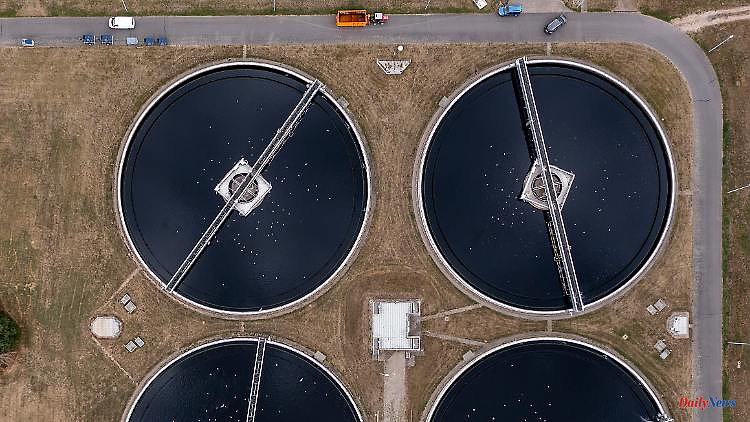Water is a precious resource. In order to protect them during periods of drought, Brandenburg's Prime Minister Woidke is calling for a rethink of how waste water is handled. So far, this has been derived from the North and Baltic Seas. From his point of view, it could be used more sensibly.
In view of the persistent drought, politicians and local authorities have called for more efficient use of water. From the point of view of the Prime Minister of Brandenburg, Dietmar Woidke, more efforts are needed throughout Germany to keep water in the cycle better in order to reduce consumption. The German Association of Towns and Municipalities warned of regional water shortages.
"Today we discharge a large part of our treated wastewater into rivers, which then flows towards the North and Baltic Seas," Woidke told the "Handelsblatt". "We should actually keep it in the region." Lower Saxony's Minister for the Environment, Olaf Lies, also called for a fundamental "rethinking of how we will deal with the precious resource of water in the future". He called for a move away from drainage and discharge towards storage, multiple uses and better distribution of water.
This requires extensive investments. "The consequences of climate change will cost us billions as an economy," said Lies. The fact that there has been no precipitation in some regions of Germany for weeks is one of the short-term consequences of climate change. In the future, however, the demand for water, for example in agriculture, will "increase substantially".
The managing director of the Association of Towns and Municipalities, Gerd Landsberg, described the drastic increase in water requirements in industry, agriculture and private households as "problematic". Garden irrigation and the filling of large pools with tap water in the summer months could become a "real problem", he told the "Handelsblatt". Lawn sprinklers distributed up to 800 liters of drinking water in one hour. "That can push the supply infrastructure to its limits in some regions," warned the head of the association.












